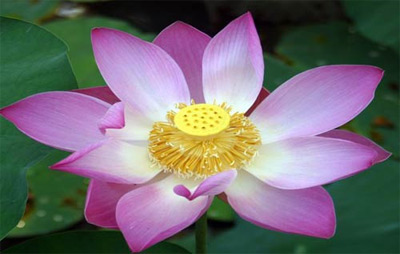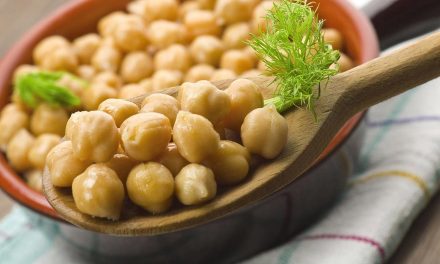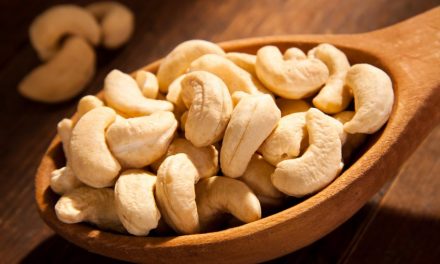Clinical studies have suggested that some Ayurvedic herbal preparations may have the potential to prevent and treat certain cancers, including breast, lung and colon cancers. However, randomized clinical trials in humans are needed to make conclusions about the role of Ayurveda in cancer prevention and treatment.
The Western approach to managing Cancer brings both opportunities for cure as well as great challenges. With early detection, prior to metastasis, western medicine can often offer patients excellent results. However, the long term prognosis for cancers which have metastasized is much less optimistic.
Cancer is a term for diseases in which abnormal cells divide without control and can invade nearby tissues. Cancer cells can also spread to other parts of the body through the blood and lymph systems. There are several main types of cancer. Carcinoma is cancer that begins in the skin or in tissues that line or cover internal organs. Sarcoma is cancer that begins in bone, cartilage, fat, muscle, blood vessels, or other connective or supportive tissue. Leukemia is cancer that starts in blood-forming tissue such as the bone marrow, and causes large numbers of abnormal blood cells to be produced and enter the blood. Lymphoma and multiple myeloma are cancers that begin in the cells of the immune system. Central nervous system cancers are cancers that begin in the tissues of the brain and spinal cord.
Cancer has always been with us. All living organisms are susceptible to cancer, and the more complex the organism, the higher the risk of cancer. A great many pressures (due to life forces, environmental forces) on the cells push them toward malignant neoplasm transformation. Our cells turn malignant constantly, and normally our immunity (Jeevan Shakti: Life forces) eliminates them. It is imperative to maintain our immunity in good working order and to know how to reduce cancer risks. There are certain ayurvedic herbs used by the tribal people of Chhattisgarh for an easy and natural defense against cancer growth. It is really a matter of research. In Ramayana, a few crude drugs (viz. Sanjivani, Sandhani, Sawarndkarani, Vishalyakarni) , are said to be the most effective plants for curing the human diseases in various ways. The herbal state Chhattisgarh is filled with nature’s wonderful gift often called natural tribal resources. These are what make human life possible on the tribal planet. It is the mystery and wonder of nature that even a cancer patient sustains life here.
The Ayurvedic words for abnormal Cancer like growths were based on the type and location, and were assigned names in a similar fashion. Granthi, Arbuda, Gulma, Asthila, Balmika, Shaluka are some of the words which were used. The Ayurvedic words ‘Tridosaja’/ ‘Sannipataja’ abnormal growth is used to indicate the malignant stage of the neoplasm; the word ‘Vataja’ or ‘Pittaja’ or ‘Kaphaja’ or a combination of any two of them (e.g. Vata-Pittaja or Vata-Kaphaja or Pitta-Kaphaja) is used to signify a benign neoplasm. Ayurveda explains that a malignant abnormal growth, or Tridosaja neoplasm, is one in which all the three major bodily control systems—Vata, Pitta and Kapha—which should have mutual coordination for normal functioning of the body, are out of control.
At the time of Atreya and Dhanwantari (7th century BC), surgery was considered the best method of treatment. They found that the herbal medical treatments against cancer, either in the form of Granthi or Arbuda, were beneficial only in the beginning stage. Nonetheless, they recorded a group of successful treatments for use against Gulma and neoplasm of individual organs. Vagabhata (8th. century AD), a well-known Buddhist physician, had introduced some new understandings and a new medical approach to the treatment of cancer. The Siddhas (7th. to 13th. century AD) made powerful contributions to the field of medicine. Especially the science which became incorrectly known as “Alchemy,” but which was actually medicine making based upon their theories of the pharmacology of toxic materials, is the contribution which brought about a revolutionary change in the medical history of Ayurveda. As a consequence of their contributions, cancer was considered no longer incurable, if it was treated in the early stages.
The Chakradatta composed by Chakrapani (10th. century AD), the Sarangadhara Samhita by Sarangadhara (14th. century AD), the Bhavaprakasha Samhita by Bhavamisra (15th. century AD), the Satmya Darpan Samhita by Viswanath (16th. century AD), the Vaisajya Ratnavali by B. Sen Gupta (18th. century AD), the Rasatarangini by Sadananda Sharma (19th. century AD) etc. are the Ayurvedic texts of internal medicine. These texts contain numerous well tested remedies based on ‘alchemy’ for internal and external cancers. Certain poisonous plants, heavy metals (such as mercury and Arsenic), minerals, and animal products were found very useful in cancers when they were prepared by the process of alchemy, using various methods to alter the strong poisons and render them harmless. Their extensive research in this field focused on the idea of ‘Rasayana,’ or immunotherapy, the term that focused on longevity. With the intention of promoting long life and good health, the doctors studying Rasayana therapies concentrated on the unique nature of certain plants and minerals which stimulated the body tissues to create extraordinary immunity against many forms of disease. Working in this field, ancient alchemists were proud to introduce some effective remedies for external and internal cancers.”
Here is a modified anti-cancer formula. It was introduced by Vagabhata in the 13th century, in the 24th chapter of his book Rasayana Samucchaya. Purified mercury is processed with tanduliyam juice (Amaranthus polyganus), Punarnava root (Boerhavia diffusa), Naga Bala (a variety of Sida cordifolia), aloe Vera, Bala (Sida cordifolia), and cow urine. This processed mercury is further potentates with Tinospora cordifolia and Semicarpus anacordium (Bhallataka). This powerful mercury is further to be fortified with addition of Kanchanara Guggul. One such preparation is Amrita Guggul. The preparation should be used along with Panch Gavya Ghrita and Maker-Sanjivani.
Potential Risk of Ayurvedic Treatment?
Some Panch Karma procedures of Ayurveda, such as Rakta Mokshana (blood-letting), and Vamana (induced vomiting), have not been shown to have any benefit and can lead to serious medical complications. Unsupervised Langhana (Fasting) and Virechana (purging) can speed up degenerative processes in cancer patients. There is very little known about Ayurvedic herbal medicines. The Ayurvedic treatment for Cancer should be done under expert supervision of a fully qualified ayurvedic doctor.












interesting article indeed,summarising ayurvedic treatment for cancer.
What about the plant nithya kalyani ,a common flowering plant of south India whose flowers are considered to be effective in the treatment of cancer.
THROUGH YOUR NOBLE AND SELF LESS MAILS YOU ARE CONTRIBUTING TO THE WELL BEING OF SOCIETY AND HIGHLIGHTING THE GREATNESS HINDUISM AND ITS OTHER ASPECTS……..KEEP THE GOOD WORK GOING.
Let me know, who sells Maker-Sanjivani and what exactly is this…. I checked on Google and could not find any medicine (ayurveda) related to this
Very good and informative article
tell me treatment of hepitituts B
Dear vasudevan sir it’s interesting to hear about nithya Kalyani. Pls MSG how to use that. And say its other benefits also.
The article is good. I always similar articles on this page. But always it lacks academic credibility because the references are not quoted. Please add references in your articles in the future.
About Ayurvedic treatment for cancers always there tall claims but very little in reality. Let us not become quakes but scientific community. Thorough research is very much need of the time. Even one case need to be thoroughly recorded and published.
Very useful article. There are quite a few cancer patients in my circle. I will be grateful if you can also furnish Ayurvedic doctors who are reliable.
Thanks for such a nice article. But from where we can get all this Ayurvedic siddh jadi butis. Any place where we can go and can rely for getting these medicines. Thanks, Neeraj
Very good and informative article.
Tirumala Tirupati Devasthanams, tirupati is having Ayurveda Nursery and pharmacy. please contact Executive Officer, TTD, Tirupati for further process of medicine if feel.
There are lot of anticancer herbs like Giloe,Sourops androgynous,Laxman phal,etc.Regular intake of turmeric milk with a little black pepper powder prevents cancer.
Intake of leaves decoction of Sourops androgynous is one of the best treatments for 15 types of cancer till date.It is 10,000 times more powerful than chemotherapy.
Sanjivni and Teliakand are undoubtedly the best herbs for cure of dreaded diseases .Unfortunately,they are beyond the reach of common human.These herbs can be identified during night as they emit light.Sanjivni is available behind the dense forest of Kedarnat.h near the natural lake full of red lotus.
For cure of Hepatitis Solanum nigrum and Phyllanthus niruri are one of the best herbs.
Ophiorhiza Mungo’s contains powerful anticancer element Camptothecin which is capable to cure cancer.It’s flower contains more anticancer element as compared to roots So, take decoction of flowers or roots for treatment of cancer particularly colon cancer.
I find that 101 /1001times Skheerabala oil/capsules a potential cure®enuvator for cancerpatients along with a digestive tablet…
Moreover i tried Skheerabala oil/caps with a tablet callef Arumin…dissovels Ganglias in writs..its my very personal expetiance&i colf dissolve 2big Ganglisd in my both hand wrists…!!!when Doctors advised surgery…So the same for Cancer..whynot..in corrtrect concentration?…or doses..